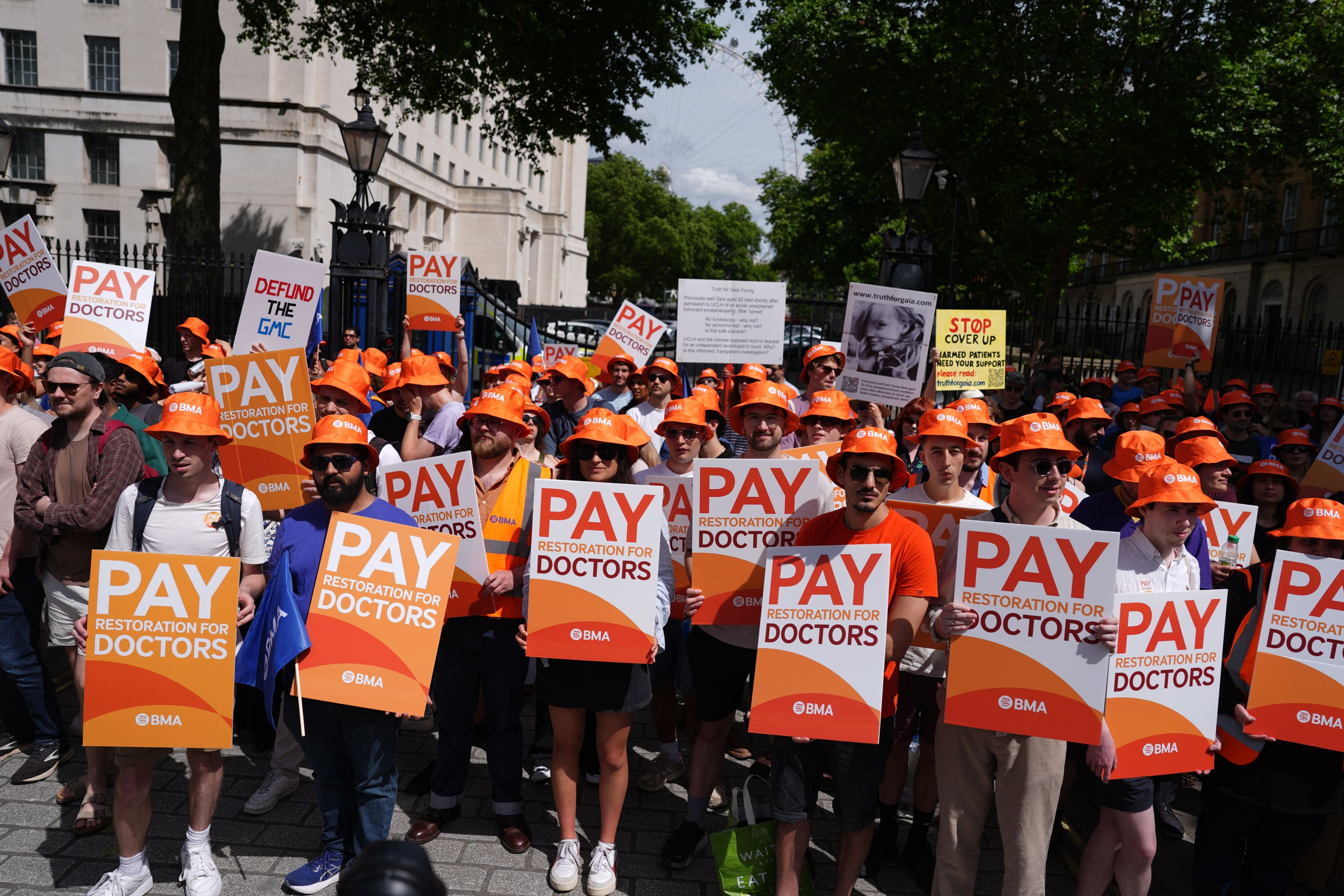Impact of junior doctor strike revealed as medics await call from Labour
Sir Keir Starmer said discussions would start on the first day of a Labour Government.

Junior doctors in England are awaiting a call from the new Labour Government after officials promised to instigate discussions on “day one”.
Health leaders have urged the government to resolve the long-running dispute as a “priority” after it emerged that tens of thousands of appointments were postponed as a result of the latest strike.
NHS England said 61,989 appointments, procedures and operations were postponed as a result of the latest round of industrial action by junior doctors.
It said 23,001 staff were absent from work due to strikes at the peak of the action.
Professor Sir Stephen Powis, national medical director for NHS England, said: “These figures bring into sharp focus the impact that this latest round of industrial action has had on patients, with nearly 62,000 appointments postponed in recent days – but we know in reality this is likely to be even higher.
“I am extremely grateful to staff for working incredibly hard to keep patients safe and prioritise care for those who needed it most, when demand for urgent and emergency services has been high.
“Colleagues across the NHS will now be doing everything they can to ensure patients who were due to receive consultations, tests or treatment get appointments rebooked as quickly as possible.”
Medics in training across the NHS downed their stethoscopes and went on strike for five full days from June 27.
The latest walkout was the 11th strike by junior doctors in 20 months.
Medics in training have said their pay has been cut by more than a quarter over the last 15 years and have called for a 35% increase.
Health commentators have called for the long-running dispute between the government and members of the British Medical Association (BMA) to be brought to a close swiftly.
Professor Philip Banfield, chairman of council at the BMA, said: “No doctor wants to take industrial action, because we know how difficult it is for patients when their care is disrupted.
“We see short-notice cancellations every day, not just on strike days.
“We can’t improve our health services and get waiting times down for patients without doctors to treat them, doctors who stay in the NHS instead of leaving for countries that value them better.
“The new Government has an immediate chance to end to these strikes, and tackle the terrible state of the NHS, with a credible offer for junior doctors that starts the journey to restoring their lost pay.
“The journey to digging out the NHS from its managed decline starts today, which includes meaningful engagement to retain the expertise of doctors.”
Last week during a campaign visit to Staffordshire, Sir Keir Starmer told reporters: “This is a problem the (Conservative) Government has failed to deal with… what we will do is ensure on day one we start the discussion.”
The BMA’s junior doctors committee has said Labour comments about pay rises being a “journey and not an event” align with their pay restoration goals.
But Labour’s Wes Streeting has said he would not meet the 35%, saying that if he gave in to the demand then “any trade union worth their salt” would come back the following year with the same request.
He has said there is “space for a discussion” on pay, as well as negotiations on how to improve working conditions for medics in training.
The wave of industrial action which has hit the NHS since December 2022 – which has seen strikes by nurses, other doctor groups, physiotherapists and paramedics, among other staff – has led to nearly 1.5 million appointments, procedures and operations postponed, at an estimated cost to the NHS of more than £3 billion.
Commenting on the postponements, Saffron Cordery, deputy chief executive, NHS Providers, said: “For patients and an NHS stretched to the limit it just can’t carry on like this.
“The new government and unions must make bringing disruptive strikes to a halt as a priority and act immediately to find a way to resolve the long-running junior doctors’ dispute.
“The latest strike meant yet more disruption and disappointment for thousands of patients waiting for operations, scans and other care.
“The next government must reset the relationship with NHS employees so that leaders of hospital, mental health, community health and ambulance trusts can put all of their time and energy into cutting waiting times and looking after patients instead of dealing with industrial action.”
Bookmark popover
Removed from bookmarks